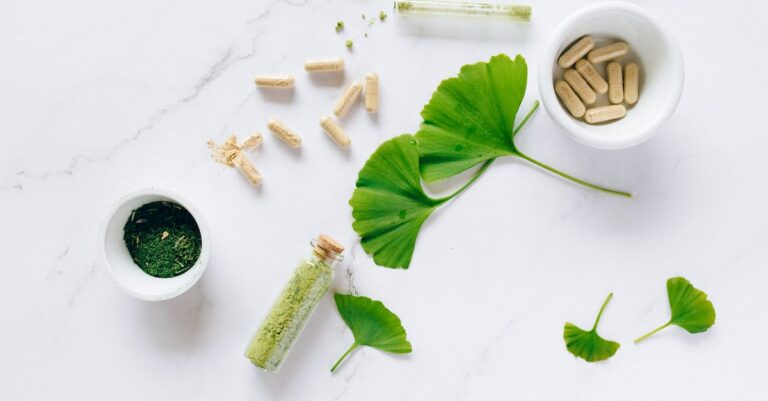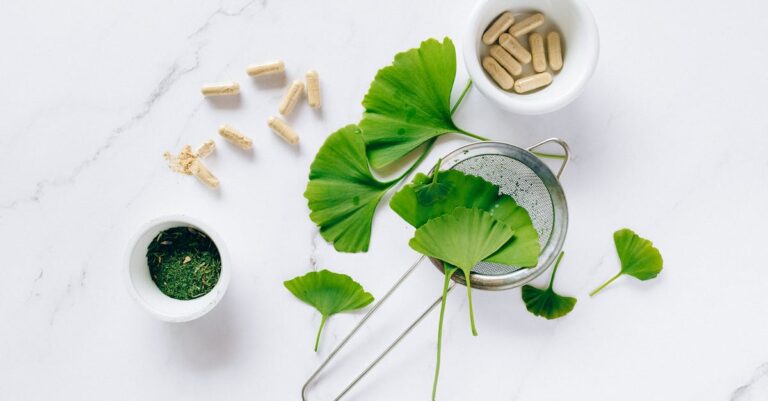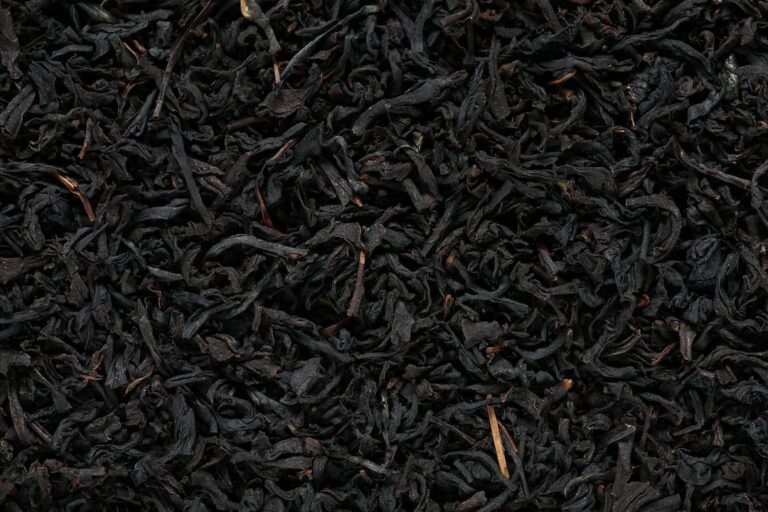Introduction
Definition of herbal medicines
Herbal medicines are natural remedies that are derived from plants and used for medicinal purposes. They have been used for centuries in various cultures around the world. The definition of herbal medicines encompasses a wide range of plant-based products, including leaves, flowers, stems, roots, and seeds. These remedies are believed to have therapeutic effects on the body and are often used to treat common ailments and promote overall well-being. However, it is important to note that the effects of herbal medicines can vary depending on the specific plant and its preparation. For example, garlic is a commonly used herb that is known for its potential effects on liver health. Studies have suggested that garlic may have protective properties for the liver, potentially reducing the risk of liver damage. It is important to consult with a healthcare professional before using herbal medicines, especially if you have any existing medical conditions or are taking other medications.
Popularity of herbal medicines
Herbal medicines have gained significant popularity in recent years due to their perceived natural and holistic approach to healthcare. Many people are turning to herbal remedies as a potential alternative to conventional medications. The increasing interest in herbal medicines can be attributed to several factors. First, the growing concern over the potential side effects of synthetic drugs has led individuals to seek safer and more natural alternatives. Second, the accessibility and affordability of herbal medicines have made them an attractive option for those seeking cost-effective healthcare solutions. Finally, the belief that herbal medicines can address a wide range of health conditions, including sleep disorders, has further contributed to their popularity. However, it is important to note that the safety and effectiveness of herbal medicines vary greatly, and not all herbal remedies are suitable for every individual. Therefore, it is crucial to consult with a healthcare professional before incorporating herbal medicines into one’s healthcare regimen.
Perception of safety
Herbal medicines have gained popularity in recent years due to their perceived safety and natural origins. However, the perception of safety associated with herbal medicines may not always be accurate. While herbal medicines are derived from plants and are often considered natural, it is important to recognize that natural does not always equate to safe. There are several factors that can affect the safety of herbal medicines, including the quality of the product, the dosage used, and the individual’s specific health conditions. It is crucial for individuals to be well-informed and exercise caution when using herbal medicines as part of their self-care routine. By following self-care tips and seeking guidance from healthcare professionals, individuals can ensure the safe and effective use of herbal medicines.
Benefits of Herbal Medicines

Natural ingredients
Herbal medicines have gained popularity in recent years due to their natural ingredients. Many people believe that because these medicines are derived from plants and other natural sources, they are completely safe. However, it is important to note that just because something is natural does not necessarily mean it is without risks or side effects. It is always advisable to consult with a healthcare professional before starting any herbal medicine regimen. When it comes to natural detox methods, there are several options available. These methods aim to cleanse the body of toxins and promote overall health and well-being. Some popular natural detox methods include drinking herbal teas, consuming detoxifying foods, and practicing regular exercise and meditation. While these methods may have some benefits, it is important to approach them with caution and to consult with a healthcare professional to ensure they are safe and suitable for individual needs.
Traditional knowledge
Traditional knowledge refers to the accumulated wisdom and practices of indigenous cultures that have been passed down through generations. It encompasses a wide range of knowledge, including the use of herbal medicines. Herbal medicines have been used for centuries in traditional systems of medicine, such as Ayurveda and Traditional Chinese Medicine, to treat various ailments and promote overall well-being. These medicines are derived from plants and are believed to be effective due to their natural properties. However, it is important to note that just because herbal medicines are natural does not necessarily mean they are completely safe. While many herbal medicines have been studied and found to be safe when used appropriately, some may have potential side effects or interact with other medications. Therefore, it is essential to consult with a healthcare professional before using herbal medicines, especially if you have any underlying health conditions or are taking other medications. By combining traditional knowledge with modern scientific research, we can make informed decisions about the safety and efficacy of herbal medicines.
Holistic approach
A holistic approach to healthcare takes into consideration the physical, mental, and emotional well-being of an individual. It emphasizes the importance of treating the whole person rather than just focusing on specific symptoms or diseases. When it comes to natural detox remedies, many people turn to herbal medicines as a way to cleanse their bodies and promote overall wellness. However, it is important to remember that just because something is natural does not necessarily mean it is completely safe. While herbal medicines can offer potential benefits, they can also have side effects and interactions with other medications. Therefore, it is essential to approach herbal medicines with caution and consult with a healthcare professional before incorporating them into your wellness routine.
Potential Risks of Herbal Medicines

Lack of regulation
Lack of regulation is a significant concern when it comes to the use of holistic medicine. Unlike pharmaceutical drugs, herbal medicines are not subject to the same rigorous testing and quality control measures. This lack of regulation means that the safety and efficacy of herbal medicines can vary greatly. Without standardized guidelines and oversight, there is a risk of inconsistent dosages, impurities, and potential interactions with other medications. It is important for consumers to be aware of these potential risks and to consult with healthcare professionals before incorporating holistic medicine into their healthcare routine.
Variability in quality
Variability in quality is a significant concern when it comes to herbal medicines. Although they are often considered safe because they are natural, the lack of regulation and standardized manufacturing processes can lead to inconsistencies in their composition and potency. One area where this variability is particularly evident is in the effectiveness of herbal medicines for mercury removal. While some herbal medicines may claim to have the ability to remove mercury from the body, the quality and efficacy of these products can vary greatly. It is important for consumers to be aware of this variability and to carefully research and choose herbal medicines that have been tested for their effectiveness in mercury removal.
Interactions with other medications
Herbal medicines, also known as natural medicines, are often perceived as safe due to their natural origins. However, it is important to be aware of potential interactions with other medications. While natural medicines can offer various health benefits, they can also interact with prescription drugs, over-the-counter medications, and even certain foods. These interactions can range from mild to severe and may lead to adverse effects or reduced efficacy of both the herbal medicine and the other medication. Therefore, it is crucial to consult with a healthcare professional or pharmacist before combining natural medicines with other medications to ensure safety and effectiveness.
Safety Measures for Herbal Medicines

Consulting with healthcare professionals
Consulting with healthcare professionals is crucial when considering the use of herbal medicines. While herbal medicines are often perceived as safe because they are natural, it is important to remember that they can still have potential risks and interactions with other medications. Healthcare professionals, such as doctors, pharmacists, and herbalists, have the knowledge and expertise to provide guidance on the appropriate use of herbal medicines. They can assess your individual health condition, consider any potential contraindications or allergies, and recommend the most suitable herbal remedies. By consulting with healthcare professionals, you can ensure that you are using herbal medicines safely and effectively.
Researching the product
Researching the product is an essential step to ensure its safety and effectiveness. When it comes to herbal medicines, many people believe that they are completely safe because they are natural. However, it is important to note that just because something is natural does not automatically mean it is safe. In fact, herbal medicines can have potential risks and side effects if not used properly. Therefore, it is crucial to conduct thorough research on the product before using it. This includes investigating the source of the herbal medicine, understanding its ingredients, and consulting with healthcare professionals. By doing so, individuals can make informed decisions about the health benefits of tea and ensure their safety.
Following recommended dosage
Taking herbal medicines can be beneficial for your health, but it is important to follow the recommended dosage. The dosage instructions provided by the manufacturer or a healthcare professional are designed to ensure the safe and effective use of the herbal medicine. By following the recommended dosage, you can minimize the risk of potential side effects and optimize the therapeutic benefits. It is crucial to remember that even though herbal medicines are natural, they can still have potent effects on the body. Taking more than the recommended dosage can lead to adverse reactions or interactions with other medications. Therefore, it is always advisable to consult with a healthcare professional before starting any herbal medicine regimen.
Conclusion

Balancing the benefits and risks
Balancing the benefits and risks of herbal medicines is essential in determining their overall safety. While herbal medicines are often considered natural and therefore assumed to be completely safe, it is important to recognize that they can still pose risks and potential side effects. One key aspect to consider is the potential interactions between herbal medicines and conventional medications. Another important factor is the quality and standardization of herbal products, as variations in potency and purity can affect their safety. Additionally, the dosage and duration of herbal medicine use should be carefully monitored to ensure optimal safety and effectiveness. It is also crucial to consult with healthcare professionals and experts in herbal medicine to make informed decisions and minimize potential risks. In conclusion, while herbal medicines can offer various benefits, it is important to balance these benefits with the potential risks to ensure overall safety.
Individual responsibility
Individual responsibility is a crucial aspect when considering the safety of herbal medicines. While herbal medicines are often perceived as safe because they are natural, it is important for individuals to understand that they are not completely risk-free. It is essential for individuals to take responsibility for their own health and well-being by conducting thorough research, consulting with healthcare professionals, and carefully following recommended dosages and instructions. By being proactive and informed, individuals can make educated decisions about the use of herbal medicines and minimize potential risks. It is also important to note that individual responses to herbal medicines can vary, and what may be safe for one person may not be safe for another. Therefore, taking personal responsibility and being aware of potential risks is crucial when considering the use of herbal medicines.
Importance of informed decision-making
Informed decision-making is of utmost importance when it comes to evaluating the safety of herbal medicines. While herbal medicines are often perceived as safe because they are natural, it is crucial to consider various factors before making a decision. The term ‘natural’ does not necessarily guarantee safety, as many natural substances can still have adverse effects on the human body. Therefore, it is essential to gather reliable information, consult healthcare professionals, and assess the potential risks and benefits associated with herbal medicines. By making informed decisions, individuals can ensure their own safety and well-being.
FAQ (Frequently Asked Questions)

Are herbal medicines completely safe?
Herbal medicines have gained popularity in recent years due to their natural origins and perceived safety. However, the question remains: are herbal medicines completely safe? One important aspect to consider is their effectiveness in killing E. coli naturally. E. coli is a common bacteria that can cause serious infections in humans. Herbal medicines have shown promising results in combating this harmful bacteria, with certain herbs exhibiting strong antimicrobial properties. These herbs contain bioactive compounds that can inhibit the growth of E. coli and even kill the bacteria. By harnessing the power of nature, herbal medicines provide a potential alternative to conventional antibiotics for treating E. coli infections. It is important to note that while herbal medicines offer potential benefits, they should be used with caution and under the guidance of a healthcare professional to ensure safety and effectiveness.
Can herbal medicines cause side effects?
Herbal medicines have long been used as a natural alternative to conventional medications. They are derived from plants, such as leaves, roots, and flowers, and are believed to have therapeutic properties. However, it is important to note that herbal medicines, like any other form of medication, can cause side effects. While they are generally considered safe, certain herbs may interact with other medications or have adverse effects on certain individuals. It is crucial to consult with a healthcare professional before starting any herbal treatment, especially if you have any pre-existing medical conditions or are taking other medications. Additionally, it is important to be aware of the potential side effects of specific herbs. For example, the leaf for eyesight, a popular herbal remedy for improving vision, may cause gastrointestinal discomfort in some individuals. Therefore, it is essential to be well-informed and cautious when using herbal medicines.
What precautions should be taken when using herbal medicines?
When using herbal medicines, it is important to take certain precautions to ensure your safety and well-being. Although herbal medicines are derived from natural sources, they can still have potent effects on the body. It is recommended to consult with a healthcare professional or a qualified herbalist before starting any herbal treatment. They can provide guidance on proper dosage, potential interactions with other medications, and any contraindications based on your specific health condition. Additionally, it is crucial to carefully read and follow the instructions provided with the herbal medicine product. This includes checking the expiration date, storing the product correctly, and adhering to the recommended dosage. If you experience any adverse reactions or unexpected side effects while using herbal medicines, it is important to discontinue use and seek medical attention. By taking these precautions, you can ensure the safe and effective use of herbal medicines.




















































